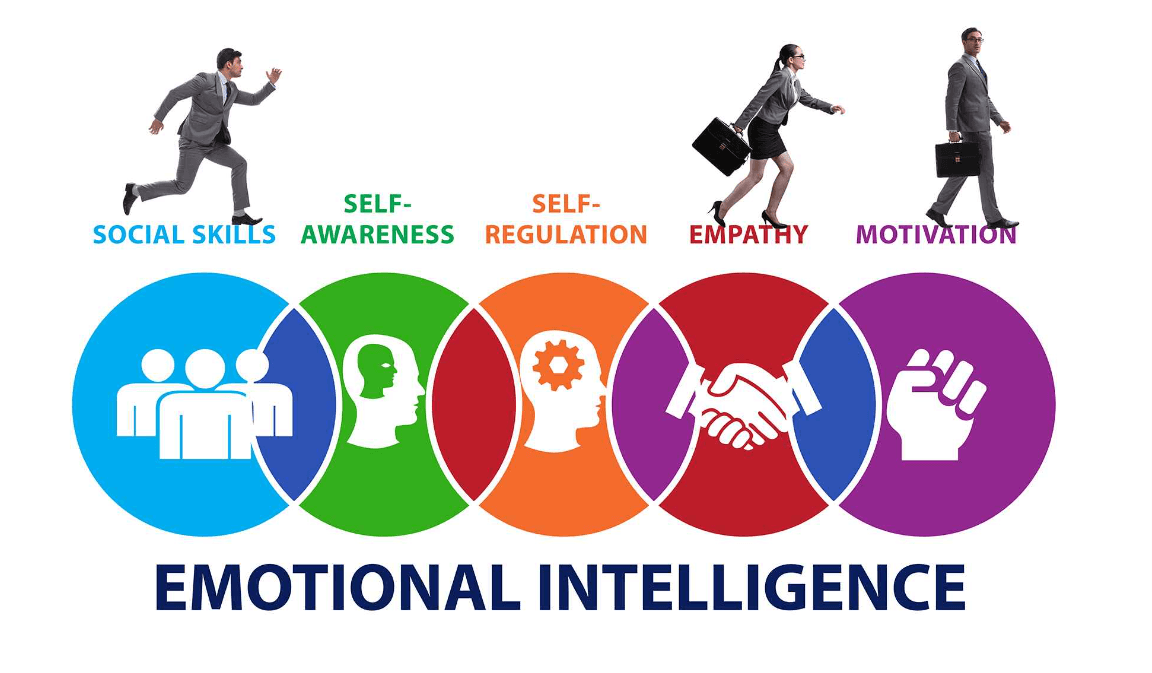Emotional intelligence, or EQ, is an important skill. It helps us understand, manage, and even control our feelings. Not only that, it also helps us understand the emotions of others. This skill is essential in both personal and work relationships. By blending thoughts and emotions, we can make better choices. This can lead to stronger relationships and better mental health. Today, EQ is seen as a key skill for success. Understanding its parts and why it matters has become really important. What is emotional intelligence? At its heart, emotional intelligence means using emotions to make smart decisions. It helps us make sense of our feelings and how they affect our actions. The Six Seconds Model breaks EQ into three main areas: These three areas break down into eight skills. These are measurable and can be learned. We will look at these skills in detail later. History of emotional intelligence The idea of emotional intelligence isn’t new. The roots of EQ go back over 2,000 years to the Greek philosopher, Plato. He said, “All learning has an emotional base.” But, it wasn’t until much later that people began studying EQ as a form of intelligence. In 1990, two researchers, Peter Salovey and John Mayer, wrote an article that introduced EQ as something that could be tested scientifically. Their work became the foundation for what we know today as EQ. In 1995, Daniel Goleman made EQ famous with his book, Emotional Intelligence: Why It Can Matter More Than IQ. His book brought EQ into the public eye. Goleman showed how emotional intelligence plays a huge role in success and well-being. Two years later, in 1997, the Six Seconds team developed a framework for teaching EQ skills. This framework is now one of the most popular ways to understand and develop emotional intelligence. Why emotional intelligence is important Emotional intelligence is key to building healthy relationships. This is true for both relationships with others and with ourselves. Studies have shown that people with high EQ handle stress better. They are also better at communicating and managing relationships. Research links emotional intelligence to many important outcomes. These include: Many studies suggest that EQ predicts success more accurately than IQ. This does not mean IQ isn’t important. Instead, it means EQ and IQ should work together. EQ helps cognitive (thinking) growth and allows us to learn and grow deeply. Can emotional intelligence be measured and improved? Yes, emotional intelligence can be both measured and improved. There are many scientifically tested tools to measure EQ. These are used for both individuals and organizations. One of the most well-known tools is the Six Seconds Emotional Intelligence (SEI) test. It measures a person’s EQ skills and points out areas for improvement. The SEI measures eight EQ skills. These skills include: These skills make emotional intelligence practical. They offer real tools for growth in both personal and professional life. The interplay of IQ and EQ People sometimes think IQ and EQ are opposites. They are not. In fact, they work together. Both IQ and EQ affect how we think and feel. Our brains are built to connect emotions with thoughts. Emotional processing and learning happen in the same areas of the brain. This means our emotions impact our thinking, and vice versa. Sadly, many schools focus only on developing IQ. They prioritize thinking skills over emotional skills. This can lead to unbalanced personal growth, as EQ is just as important for success and well-being. How to develop emotional intelligence Improving EQ takes practice. Here are some simple strategies to help you build emotional intelligence: Emotional intelligence in leadership Emotional intelligence is a critical skill for leadership. In today’s fast-paced work world, leaders with high EQ build trust, resolve conflicts, and inspire their teams. They lead their organizations to success by creating a positive and productive work environment. Let’s look at the six emotional intelligence skills leaders need: Conclusion: the power of emotional intelligence Emotional intelligence can greatly impact every part of your life. Whether it’s improving your relationships, doing better at work, or finding a sense of purpose, EQ is key. While IQ is important for thinking tasks, EQ helps you handle emotions and make better decisions. By developing emotional intelligence skills like empathy, optimism, and self-awareness, you can build stronger connections, make wiser choices, and live a more meaningful life. Best of all, emotional intelligence can be learned and improved. Achieve your goals with Coach Maria Urbańczyk I am Maria Urbańczyk, a Certified Lifestyle & Business Coach. If you’re ready to take the next step toward success, I am here to help. Whether you are aiming for personal growth, career development, or improving your leadership skills, I will support you every step of the way. Contact me today, and let’s make it happen! FAQs

